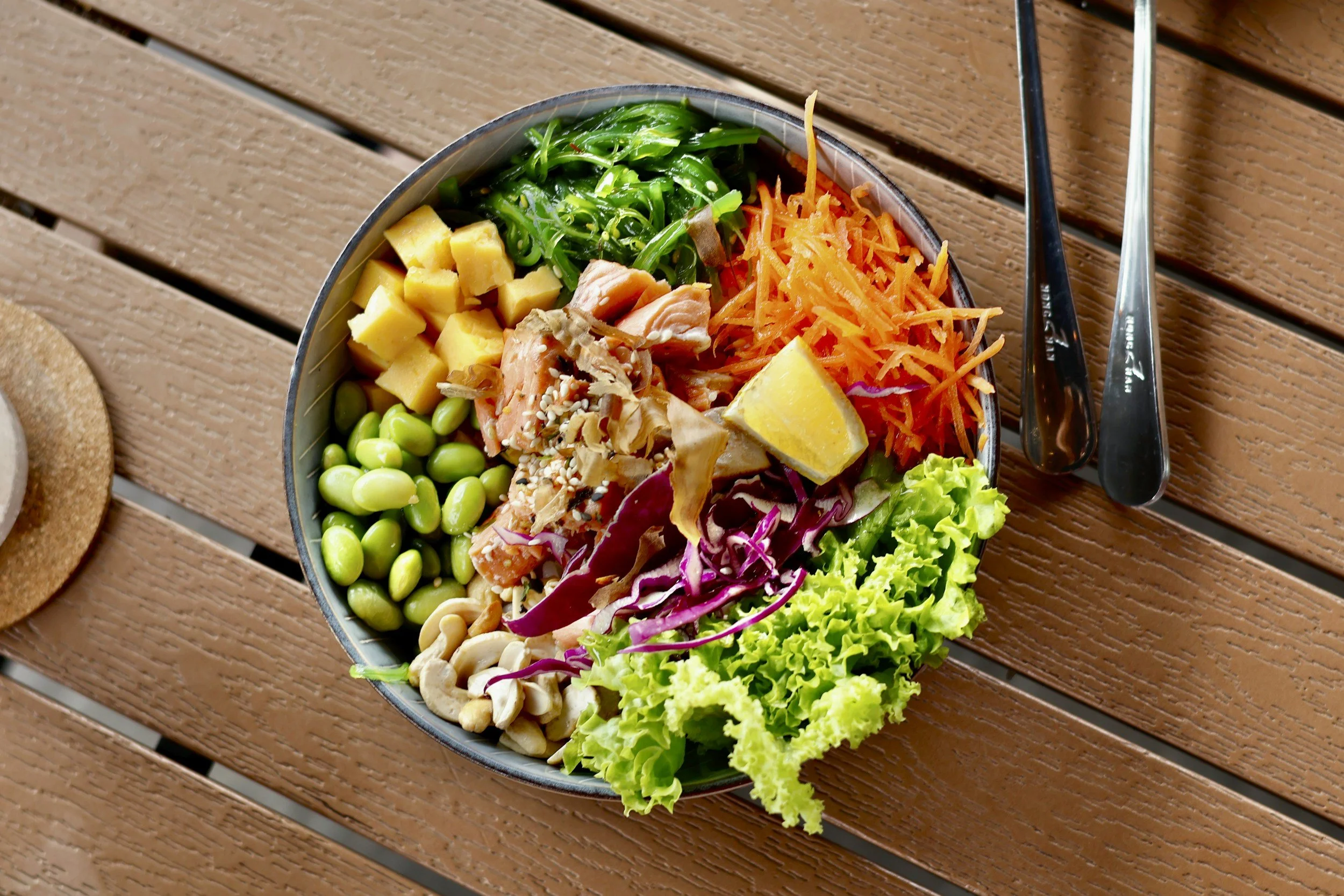Simple Steps To Balance Blood Glucose
Maintaining healthy blood glucose levels is crucial for overall well-being. Elevated blood sugar levels, if left uncontrolled, can lead to weight gain and serious health complications like type 2 diabetes and heart disease. High blood glucose can also contribute to symptoms of fatigue, increased hunger, thirst and brain fog.
The good news is that you have more control over your blood sugar than you might think, and one of the most effective ways to manage your glucose levels is through diet.
Why Blood Glucose Control is Important
When you eat, your body breaks down carbohydrates into glucose, which then enters the bloodstream to provide energy. Your body releases insulin, a hormone produced by the pancreas, to help cells absorb glucose. However, in people with insulin resistance or diabetes, the body doesn't use insulin effectively, leading to elevated blood glucose levels.
Uncontrolled blood sugar can lead to symptoms like fatigue, thirst, frequent urination, and blurry vision. Over time, it can increase the risk of more serious complications such as heart disease, kidney failure, and nerve damage. That’s why controlling your blood glucose through diet, exercise, and lifestyle changes is essential for long-term health.
The Role of Diet in Blood Glucose Control
Your diet plays a key role in managing blood glucose. Certain foods can cause rapid spikes in blood sugar, while others help slow the absorption of glucose and promote stable blood sugar levels. Choosing nutrient-dense foods and understanding how they affect blood sugar can make a significant difference in managing your glucose levels.
Foods to Include for Better Blood Sugar Control
Protein: Lean protein sources such as chicken, turkey, tofu, and eggs can help control hunger and prevent overeating, which can lead to blood sugar imbalances. Protein doesn’t significantly increase blood sugar levels, making it a key component of any meal.
Wholegrains: Unlike refined grains (e.g., white bread, pasta), wholegrains are rich in fibre, which slows the digestion and absorption of carbohydrates. Foods like oats, quinoa, and brown rice help maintain steady blood glucose levels.
Leafy Greens: Non-starchy vegetables, such as spinach, kale, and broccoli, are low in carbohydrates and rich in fibre. They are nutrient-dense and won't spike blood sugar, making them ideal for a balanced diet.
Legumes: Beans, lentils, and chickpeas are high in fibre and protein, which can help regulate blood sugar by slowing digestion and releasing energy slowly, improving insulin sensitivity.
Healthy Fats: Foods like avocado, nuts, seeds, and olive oil provide healthy fats that can improve insulin sensitivity and help stabilise blood sugar. Omega-3 fatty acids found in fatty fish, like salmon and sardines, also play a role in reducing inflammation, which is often associated with blood sugar problems.
Foods to Avoid or Limit
While some foods can help maintain stable blood glucose levels, others can cause rapid spikes or drops which can lead to overeating, fatigue and poor concentration. It’s important to be mindful of the following foods:
Refined Carbohydrates: White bread, pastries, and sugary snacks are high in simple sugars and refined flour, which can cause blood glucose levels to spike quickly. Opt for wholegrains and complex carbohydrates instead e.g. wholemeal bread, pasta and rice.
Sugary Drinks: fizzy drinks, fruit juices, and sweetened coffees can raise blood sugar levels quickly. These drinks provide little nutritional value and can lead to energy crashes and weight gain. Water, herbal teas, or black coffee are better alternatives.
Excessive Alcohol: While moderate alcohol consumption may not significantly affect blood sugar, excessive drinking can impair liver function and cause blood sugar fluctuations. If you drink, do so in moderation and always with food.
High-Sugar Desserts: Cakes, biscuits, ice cream, and other sugary treats can cause rapid blood sugar spikes. While it’s okay to indulge occasionally, frequent consumption of high-sugar foods can make it harder to control blood glucose levels.
Tips for Managing Blood Glucose with Diet
Eat Three Balanced Meals A Day: Eating three regular, well balanced meals throughout the day, consisting of a portion of protein, healthy fats, and complex carbohydrates, can help maintain steady blood sugar levels. Avoid snacking between meals which disrupts blood glucose levels and increases appetite.
Focus on Protein and Fibre: Foods high in protein, such as eggs, lean meat and pulses alongside high fibre foods, for example, vegetables, wholegrains and legumes, can help slow the absorption of glucose and reduce blood sugar spikes.
Combine Foods Wisely: Base all meals on a source of protein and fibre. When carbohydrates are combined with protein or healthy fats they can slow down the digestion of glucose and prevent rapid spikes in blood levels.
Monitor Portion Sizes: Large portions of high-carb foods can overwhelm the body’s ability to manage blood sugar. Consider using smaller plates and ensure at least half of the plate is vegetables and legumes, and one quarter is protein.
Stay Hydrated: Drinking enough water helps support kidney function and maintains hydration, which is essential for optimal blood sugar levels.
Avoid Eating Late at Night: Some research suggests that eating larger meals earlier in the day may help better control blood sugar. Try having a substantial breakfast and lunch, with a lighter dinner to give your body time to process food.
Conclusion
Controlling blood glucose through diet is one of the most powerful tools you have for maintaining your health and preventing long-term complications. By focusing on nutrient-dense, fibre-rich foods and avoiding excessive sugar and refined carbohydrates, you can promote stable blood sugar levels and improve your overall health. Remember, small changes and simple swaps can make a big difference, so try implementing one or two changes to begin with and notice how these impact on your overall well-being.

